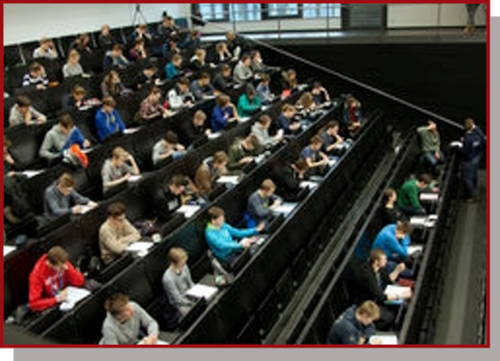Dr. Jörg Debus
Experimentelle Physik2, TU Dortmund
spricht zum Thema:
Dark excitons in Fano resonance and upconversion processes
The talk focuses on spin-dark excitons involved in a novel kind of Fano resonance and on momentum-dark excitons allowing for the upconversion of light into bright intravalley excitons.
In InGaAs quantum dots, the discrete bright-dark exciton transition interferes with a continuum formed by a pair of orthogonally linear-polarized acoustic phonons. This quantum interference leads to spectral features, like an anti-resonance or a bipolar-shaped resonance, characteristic for a Fano process. It allows for a state-selective excitation and detection of the spin-dark exciton up to a temperature of 60 K. Its coupling to the phonon continuum and, in turn, the visibility of the Fano resonance is tuned nonlinearly by an external magnetic field and the optical pumping intensity. Moreover, the shape of the Fano resonance indicates the contribution of either absorbing or emitting phonons as well as allows for distinguishing between real exciton eigenstates and virtual states. Our observations make the spin-phonon Fano process highly attractive for studying optically inactive carrier complexes in semiconductor structures.
In an hBN-encapsulated WSe2 monolayer, we found a mechanism in which a momentum-dark (intervalley) exciton upconverts light into a bright intravalley exciton. Excitation spectra of upconverted photoluminescence reveals resonances at the energies 34.5 and 46.0 meV below the neutral exciton in the nominal WSe2 transparency range. The energy and momentum required for the upconversion process are provided by the photogenerated and resident electrons which scatter between the upper and lower spin subbands in the K− and K+ valleys. The interaction process observed between the inter- and intravalley excitons elucidates the importance of dark excitons for the optical properties of two-dimensional materials.
Interessenten sind herzlich eingeladen.
Prof. Dr. Korn
Zur Terminübersicht des physikalischen Kolloquiums

